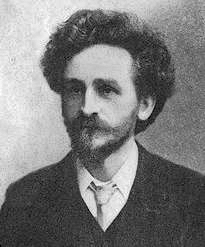 Image by loswl via Flickr
Image by loswl via Flickr
L.D. Turner
Jesus opened his earthly mission with an announcement regarding the
Kingdom of Heaven. He went on to speak of the kingdom repeatedly and let it be known in clear and concise ways that this whole notion of “kingdom” was the core of his mission. In addition, he passed on that mission to us. Just as Christ stressed the importance of the establishment of the kingdom “on earth as it is in heaven,” so too are we to do everything in our power to lay the foundations for his kingdom rule.
The overriding problem is this: We haven’t done a very good job at carrying out this mission.
As individual members of the Body of Christ, it is our duty to share the kingdom message at every opportunity. In doing so, however, we must take care to present Jesus’ kingdom manifesto in ways that are relative to today’s world. The concept of “kingdom” has little meaning to most people, especially in the West. Perhaps it is time to seek new metaphors for explaining kingdom concepts. Before we can do this, however, we must formulate more accurate and effective ways of defining and describing the gospel message. Moreover, we have to reintroduce Jesus to the world and to ourselves.
Further, as we go about reformulating our methods of presentation of the gospel and of Jesus, we will meet challenging obstacles and barriers. Some of these challenges come from the world, some from the enemy, and remarkably, some come from ourselves.
A critical factor in exposing our culture to the radical manifesto that Christ taught is to be straightforward about its content. For too long now, the Church, especially in America, has promoted a gospel stressing individual salvation as the highest priority, with social action coming in a distant second. There were, of course, notable exceptions to this trend. Groups like the Quakers and the early Methodists faced head on issues such as economic injustice, poverty, and slavery. Be that as it may, for the large part the Church in the West has served the existing status quo at the expense of hiding the true gospel that the Lord came to deliver. Over time, the Church seems to have even hidden Christ’s gospel from itself. What we ended up with was a domesticated Jesus that patted children on the head, held lambs in his arms, and, by extension, supported our culture’s view of justice.
One tragic consequence of the Church’s support of the status quo was a distortion of the meaning of “God’s justice.” Over time the Church came to view God’s justice as mostly related to humanity’s sinful nature. God’s justice was what we would have to deal with were it not for the sacrifice of Jesus. In essence, the Church said that God’s justice, if carried out, would turn us to toast unless we repented and brought Jesus on board as savior. While there may be a smattering of truth in all this, the line of thought adopted by and preached by the Church saw the opposite of God’s justice as humanity’s sin.
I don’t think this is what Jesus was getting at. I firmly believe that, for Jesus, the opposite of God’s justice was humanity’s injustice. His mission in preaching, teaching, and applying Kingdom principles was aimed at rectifying this situation by placing God’s justice at the heart of our world, instead of humanity’s injustice.
Jesus called for a new system that ran counter to that of the world, not only in his time, but in ours as well. He called for compassion, justice, caring, service, forgiveness, and a host of other themes that are both startling and challenging. As we go about sharing Jesus’ vision, we must also be honest about how the Church, for whatever reasons, has diluted, distorted, and at times deceived in its presentation of the real “gospel” of Christ.
As the Body of Christ, it is time for us to get honest with the world we are trying to reach and even more crucial, it is time to get honest with ourselves. The image we teach, preach, and exhibit to the world through our behavior is lacking in both scope and depth. Starting with our teaching and our preaching, it is imperative that we begin to allow Jesus to be who and what he was, and still is, instead of a malleable figure from an era long ago. Moreover, we need to get to know Jesus ourselves. It is time to stop watering down the gospel and it is especially time to stop fooling ourselves into believing that he supports our political persuasion, whatever that might be. The fact is, Jesus was a revolutionary, a radical, and a thorn in the side of the religious establishment of his day. If the Lord showed up today, I can envision him being an even greater irritant to those who claim to be his followers in this day and time. I think he would especially be a menace when he dealt with the leaders of today’s Christian movements, ministries, and organizations.
The fact is the Body of Christ as a whole has done a significant amount of damage both to its witness and its reputation over the past 25-30 years. I don’t want to enter into a political debate here; that is not my intention. Both political parties have more skeletons in their respective closets than can be counted. However, a few things must be faced if we are to go about restoring Christ’s church to a position of effectiveness in post-modern culture.
The first thing that has to be tossed unceremoniously on the trash heap is our faith’s unthinking and almost mechanical marriage to the Republican Party. Since 1980 and the rise of the Reagan era, the fundamentalist, conservative, and evangelical wings of our faith has increasingly become in lockstep with the Republicans. This has done untold damage to
Christianity as a whole and, if we are to find any degree of restoration and social impact, this unholy marriage has to end. Rather than a relationship that is built on Christian principles, this alliance has been more of a pact with the Devil.
Over a period spanning four years (2004-2008) I kept an accurate count of the number of times this very issue has come up in conversation with genuine spiritual seekers who were increasingly desirous of becoming involved in Christianity. During this four-year time span, no less than 508 individuals, either in casual conversation, coaching sessions, or at workshops, lectures, and training programs, have made the following statement, or something very similar with an identical meaning.
“Well, I studied the teachings of Jesus and read the Bible almost every day. I visited a number of
churches and actually found a few I liked and thought I might like to join. But I can’t make myself do that.”
“Why not? What’s stopping you?”
“Well, if I want to be a real Christian, I would have to be a Republican and I just can’t bring myself to do that to myself or my family.”
This sort of statement happened no less than 508 times. That’s 508 potential converts that never happened. That’s 508 real, genuine spiritual seekers who have not been able to find Christ due to an erroneous assumption. That’s 508 people who have never been able to get actively involved in the faith and discover how truly beautiful our faith can be. That’s 508 people that have not been able to utilize and share their
spiritual gifts and talents for Christ in a positive, meaningful way.
That’s 508 people with eternal futures that are, at best, uncertain.
I think this misconception on the part of people occurs for several reasons. First, it occurs because our faith, as a whole, is overly identified with the Republicans. Secondly, it happens because the news media focuses just about all of its attention regarding matters of faith on the Religious Right, ignoring the reality that there exists a multitude of Christians who are either moderate or liberal in their political and religious persuasions. Lastly, it happens because too many members of the clergy attempt to control how their congregants vote. Take for example the moronic attempts a couple of years ago by a Baptist pastor in North Carolina to expel anyone in the church who voted for a Democrat.
Please, pardon me for getting on my soap box about this, but if we as a body of faith are to have any chance of healing our image, we have to become more politically discerning and independent.
One of the primary missions of the contemporary church is to reintroduce Jesus to the world. I say “reintroduce” because, over the course of time, the vision of Jesus painted in the pages of the gospels has been eroded. In order to effectively present a more accurate image of Christ to the world, we must first be reintroduced to Jesus ourselves. The image many of us carry in our hearts is often quaint, cuddly, and gentle. Most of us are familiar with the descriptions of the Lord as the good shepherd and “Jesus, meek and mild” that have been so much a part of portrait created by the church over the centuries. Granted, the Christ was all these things, but he was so much more.
He was, in a word, a rebel.
An honest appraisal of the character and mission of Jesus presented by Matthew, Mark, Luke, and John bears witness to a more raw and earthy being, one who stood in open opposition to the established order and challenged religious authority whenever he thought it necessary.
He was, in a word, a revolutionary.
The teachings presented by Jesus not only ran counter to those of established Jewish tradition, but also were in stark contrast to the wisdom of the world. I find the following comments by Houston Smith, well known scholar of comparative religion, to be so accurate and succinct, I include them in their entirety:
“…we have heard Jesus’ teachings so often that their edges have been worn smooth, dulling their glaring subversiveness. If we could recover their original impact, we too would be startled. Their beauty would not paper over the fact that they are “hard sayings,” presenting a scheme of values so counter to the usual as to shake us like the seismic collision of tectonic plates…We are told that we are not to resist evil but to turn the other cheek. The world assumes that evil must be resisted by every means available. We are told to love our enemies and bless those who curse us. The world assumes that friends are to be loved and enemies hated. We are told that the sun rises on the just and the unjust alike. The world considers this to be indiscriminating; it would like to see dark clouds withholding sunshine from evil people. We are told that outcasts and harlots enter the kingdom of God before many who are perfunctorily righteous. Unfair, we protest; respectable people should head the procession. We are told that the gate to salvation is narrow. The world would prefer it to be wide. We are told to be as carefree as birds and flowers. The world counsels prudence. We are told that it is more difficult for the rich to enter the kingdom than for a camel to pass through a needle’s eye. The world honors wealth. We are told that the happy people are those who are meek, who weep, who are merciful and pure in heart. The world assumes that it is the rich, the powerful, and the wellborn who should be happy. In all, a wind of freedom blows through these teachings that frightens the world and makes us want to deflect their effect by postponement – not yet, not yet! H.G. Wells was evidently right: either there was something mad about this man, or our hearts are still too small for his message.”
Yes, I suspect that our hearts, like those Jewish leaders who first encountered this radical personality, were too small to contain the immensity of his message. Further, the threat posed by someone who carried such a message as this was enormous. Small wonder Pilate avoided dealing with him; small wonder the religious leaders took drastic action. Jesus was many things, but one thing he was not was a person to be ignored. Dorothy Sayers, that great lady of the faith, made the same point regarding the domestication of our Lord:
The people who hanged Christ never, to do them justice, accused Him of being a bore; on the contrary, they thought Him too dynamic to be safe. It has been left for later generations to muffle up that shattering personality and surround Him with an atmosphere of tedium.
As the Body of Christ we are now in a similar cultural milieu as existed at the time Jesus walked the earth. Granted, times are different, but the themes are much the same. Like it or not, the Church now lives in a post-Christian culture. America is Christian in name only, certainly not in practice. Over the past 50 years the dominant worldview and subsequent value system has undergone marked change. Post-modernism and situational ethics now hold sway. It is within this mix that the Church must now carry out the essentials of its mission. The question at hand is: How will we reintroduce Jesus to the world, given the realities of the culture we now live in?
Answering this overriding question is a complicated affair, certainly beyond the scope of this short article. Additionally, we, as the Body of Christ, need to reflect deeply on how we may best go about meeting this aspect of our calling. Much prayer is called for. One thing is certain, however. We must present a more realistic portrait of who this man Jesus was, and still is. When he enters a person’s life, things are not always meek and mild. In fact, taking on Christ often results in an inner revolution.
As we take Jesus on board we must recognize we are giving accommodation to what can be a dangerous entity; one capable of challenging our own conventions, our own preferences, our own habits, and ultimately, our own character. Jesus does not come into a person in order to affirm the status quo. Quite the opposite, this dangerous being takes up residence within your inner kingdom with the stated aim of revolution. Yet for most of us this inner revolt is sorely needed. It can, in fact, change us from wandering, confused, and empty vessels into vibrant, vital, world changers. David Foster gives us a glimpse of just what Jesus is up to:
Jesus is like air to the lungs and water to a desert dweller. He is not a religious artifact. He’s not dead. He is alive. He is engaged and engaging. He is here now, changing lives all over this world this very moment. When He walked on earth He changed everything for everyday, for all time. What started then continues today. It can’t be stopped though many have tried. Jesus is the rock of redemption and His church will prevail. He is here in this moment with you, doing what He always does, calling you to a higher place, calling you to break free from convention and stop going to church and start being the church everywhere you go. Let’s be “Jesus people” again. Let’s be men and women whose hearts are captured, redeemed, renewed, enlivened, ignited, set fee! Let’s return to the revolution to be the change we want to see in the world!
Listen closely. In your inner sanctuary, your heart of hearts, can you hear him calling you? Will you go with him, even if it means breaking free of convention and challenging the Christian establishment when it is in error? Will you follow him, even if it means you stop going to church and start being the church?
© L.D. Turner 2010/All Rights Reserved
 Image by Rennett Stowe via Flickr
Image by Rennett Stowe via Flickr Image by Rennett Stowe via Flickr
Image by Rennett Stowe via Flickr Image via Wikipedia
Image via Wikipedia Image via Wikipedia
Image via Wikipedia Image via Wikipedia
Image via Wikipedia Image by ratterrell via Flickr
Image by ratterrell via Flickr Image via Wikipedia
Image via Wikipedia Image by loswl via Flickr
Image by loswl via Flickr